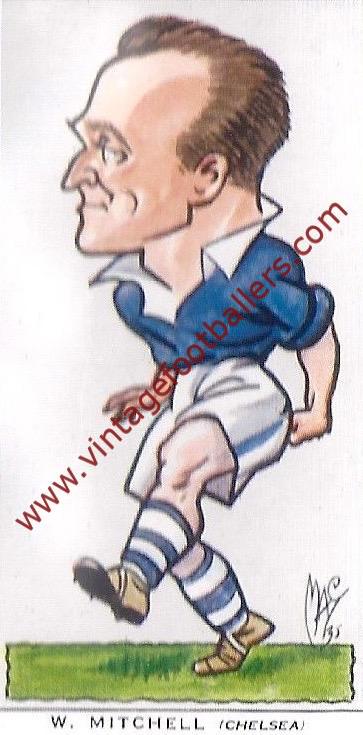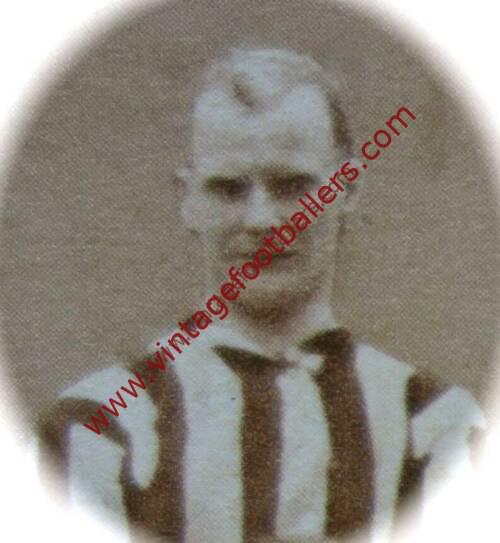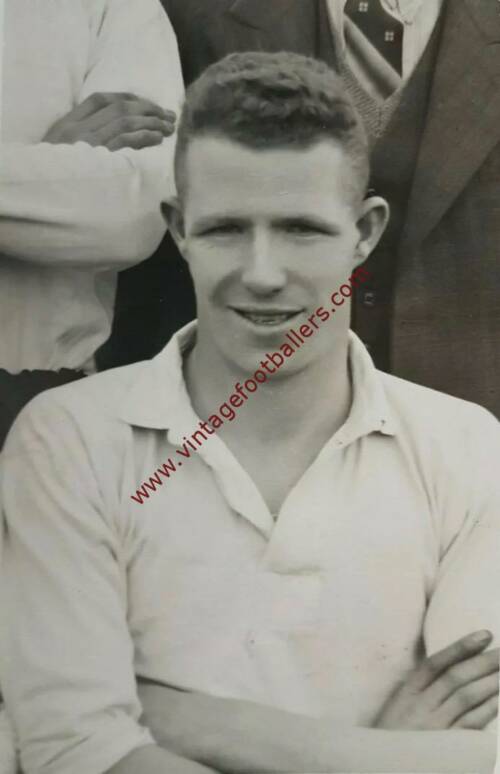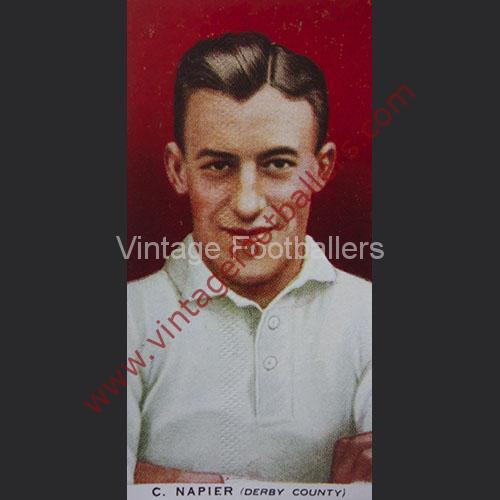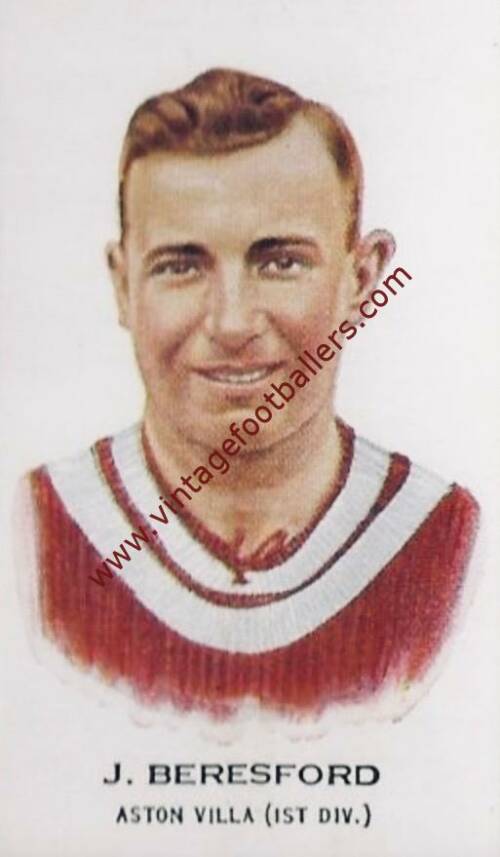Please choose your photo size from the drop down menu below.
If you wish your photo to be framed please select Yes.
Note: 16″x 20″not available in a frame.
Images can also be added to accessories. To order please follow these links
£8.95 – £49.95
Please choose your photo size from the drop down menu below.
If you wish your photo to be framed please select Yes.
Note: 16″x 20″not available in a frame.
Images can also be added to accessories. To order please follow these links
Lurgan, County Antrim born right half Billy Mitchell was initially a forward with Linfield Rangers from 1926 and joined Cliftonville in April 1928 before a spell with Dundalk, joining them in March 1929, where he played at inside-forward in a Leinster Cup Final replay defeat by Shamrock Rovers. Mitchell was one of a number of Northern Irish players signed by Dundak manager, and fellow Lurgan man, Joe McCleery during this period.
Mitchell’s big breakthrough came when he joined Distillery as an 18 year-old later in 1929. He made his Whites debut on 9th May 1929 and within a few days was turning out in a 2-2 Charity Cup Final draw with Glentoran. The follow campaign saw him established in the first team at right-half and he picked up the Gold Cup in 1930 (with a 3-0 final defeat of Bangor) and in 1931 the Charity Cup outright (Belfast Celtic beaten 4-2).
A great tackler, but with a fiery temperament, Mitchell served a number of lengthy suspensions after being sent off. That didn’t prevent the representative selectors taking an interest in Mitchell as he made his debut for The Irish League in a 5-0 defeat by the Scottish League at Firhill in October 1930, and in October a year later he made his Ireland debut in a 6-2 defeat by England at Windsor Park, Belfast. In all he won four inter-league and four international caps while on the books at Grosvenor Park.
In a six year international career the undoubted highlights for Mitchell were consecutive 2-1 wins over Scotland in 1933 and 1934. On one occasion, against Wales in 1933, Mitchell lined up for Ireland alongside his brother-in-law and Distillery team-mate Sam Jones. In 1937 Mitchell won his fifteenth and final cap, and once again it was on a frustrating day for the heavily fancied Scots who were held 1-1 at Aberdeen.
Having been an Irish Cup Finalist with Distillery in 1933, when they lost to Glentoran in a replay, and after 14 goals in 159 League appearances, Mitchell was signed by First Division Chelsea in June 1933 for £2,000, where he was to spend the following twelve years. He had to wait to make his Football League debut when he played at Middlesbrough in February 1934, one of only 6 appearances he made in his first two seasons at Chelsea, establishing himself in the first team on a regular basis from September 1935.
Mitchell was on the field for one of the most infamous matches in the history of English football. On 1st February 1936, as Chelsea faced Sunderland at Roker Park in an ill-tempered game, Mitchell was sent-off and a number of Sunderland players were injured. The worst of these injuries was to goalkeeper Jimmy Thorpe who received several kicks during a goalmouth melee and, although he completed the game, was admitted to hospital suffering from broken ribs and bruising to his head. Thorpe, who had been receiving treatment for diabetes for the previous two years, died four days later in a diabetic coma sparked by a blow to the head. He was just 22 years-old and when Sunderland claimed that season’s Championship his medal was presented to his widow. It was incidents such as this that forced the authorities to bring in a rule forbidding players from raising their feet when the goalkeeper had the ball in their hands. (There is nothing to suggest that Mitchell was directly involved in Thorpe’s death).
His time at Stamford Bridge continued in a similar vein to his Irish League career. He remained famous for his terrier-like tackling and fall outs with referees. He continued to feature regularly mainly at right half buut also on the left side as required, though was often troubled by injury. The outbreak of the Second World War in September 1939 essentially ended Mitchell’s top-level playing career, though he remained on Chelsea’s books until 1945, where he scored 3 times in 119 appearances.
In 1945 he finished his playing career with a spell at Bath City before retirement, and he later coached at Bristol City.
| Weight | N/A |
|---|

